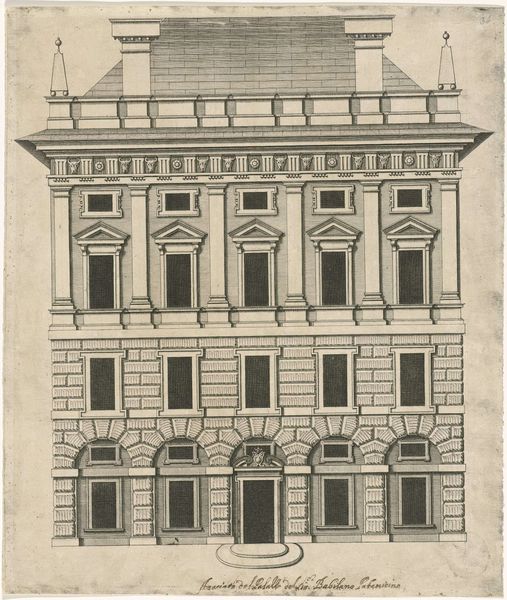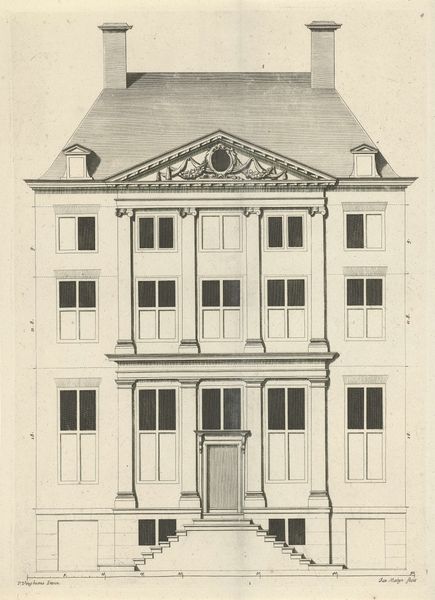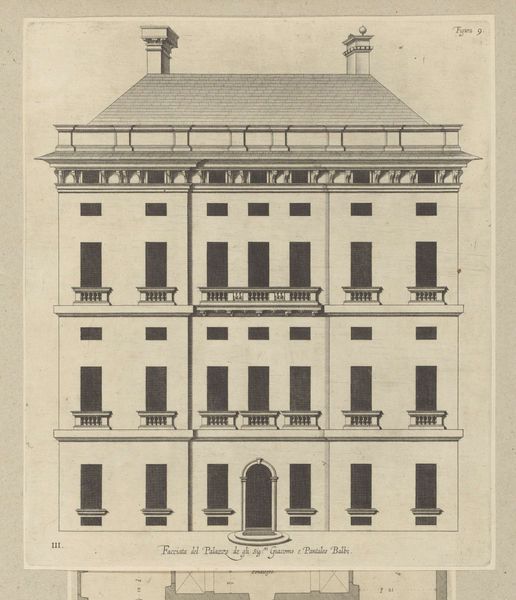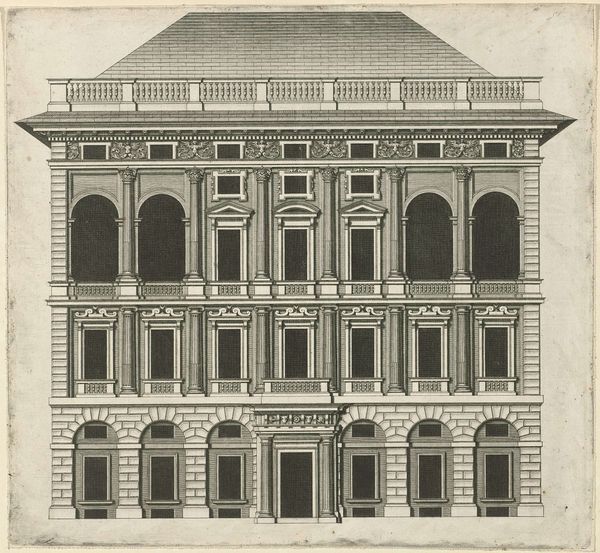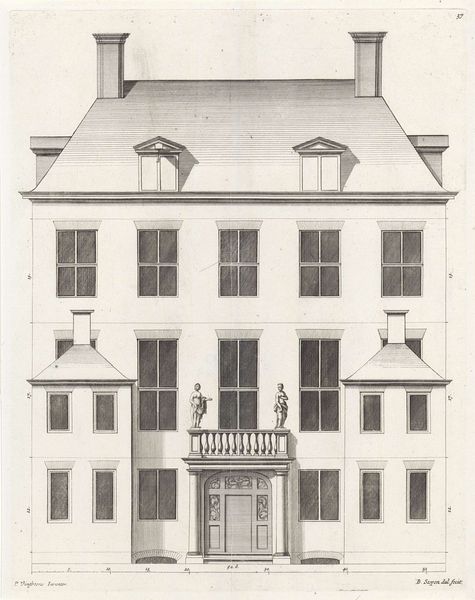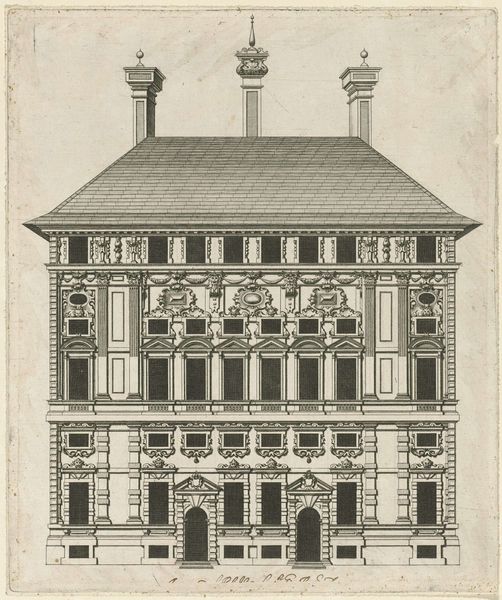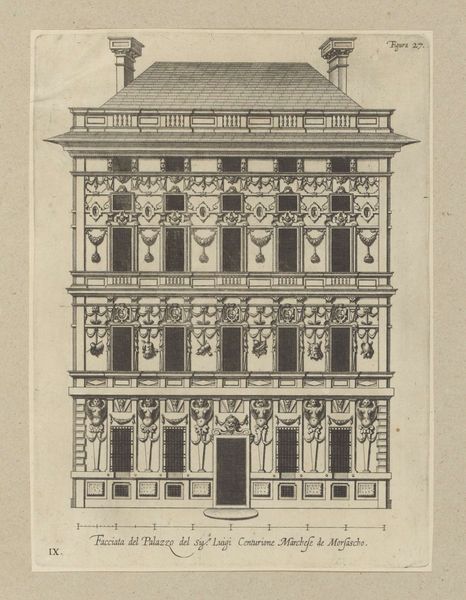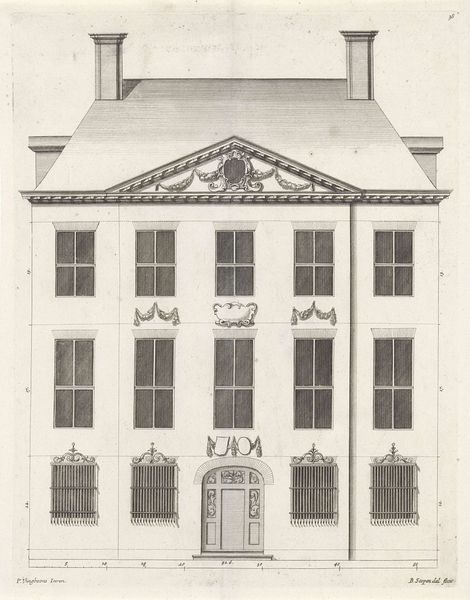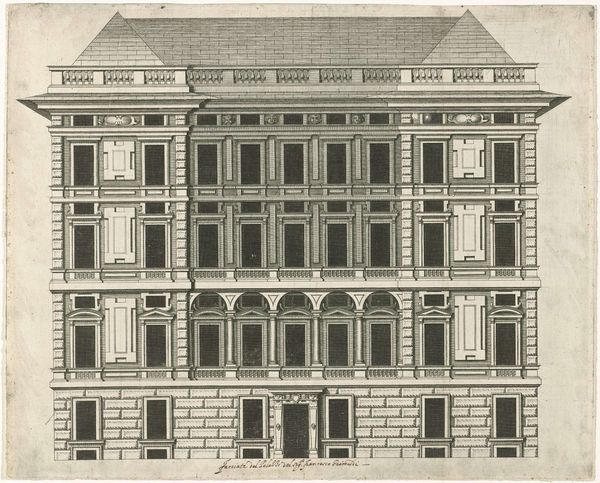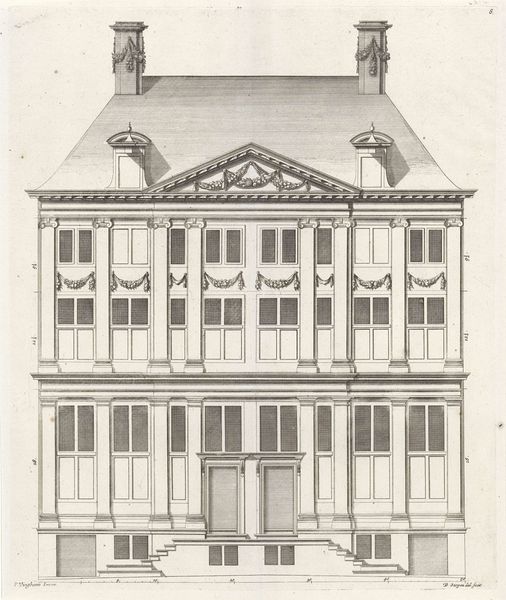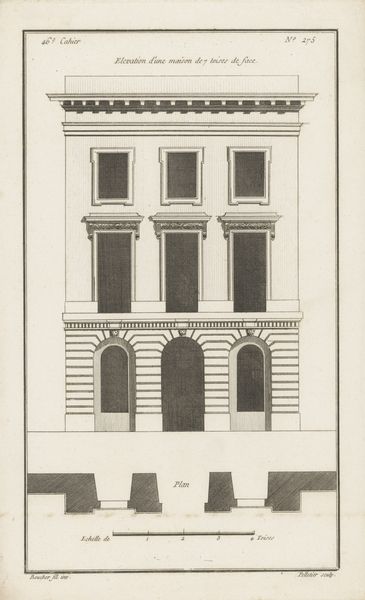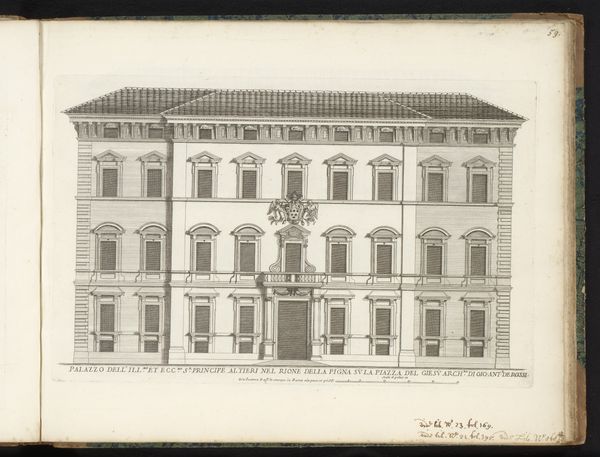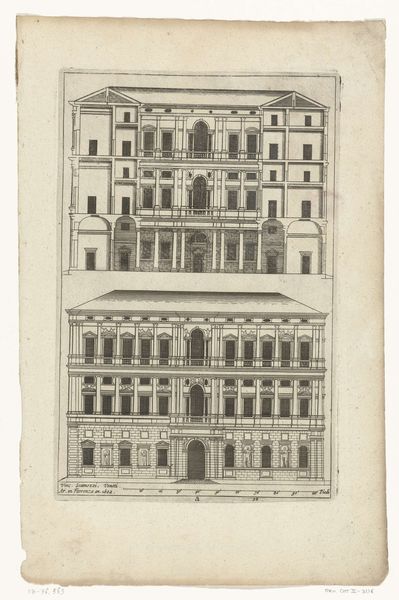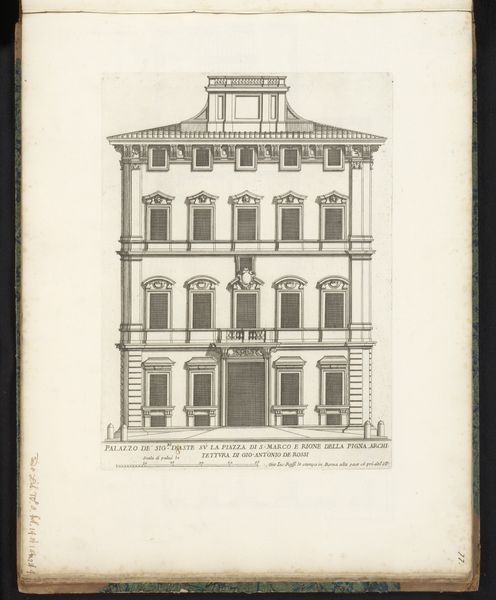
Opstand van de façade van het Palazzo Nicolò Spinola di Luccoli te Genua 1622
0:00
0:00
nicolaesryckmans
Rijksmuseum
#
aged paper
#
toned paper
#
homemade paper
#
sketch book
#
hardpaper
#
folded paper
#
golden font
#
paper medium
#
historical font
#
columned text
#
building
Dimensions: height 295 mm, width 348 mm, height 583 mm, width 435 mm
Copyright: Rijks Museum: Open Domain
Editor: So, here we have Nicolaes Ryckmans’s "Elevation of the Façade of the Palazzo Nicolò Spinola di Luccoli in Genoa," created in 1622. It’s a detailed architectural drawing, quite austere, really. I'm struck by its symmetrical nature. What stories do you think this façade might tell? Curator: I see a potent visual statement about power and control in a rapidly changing world. Look at the rigid geometry and the sheer height represented in the drawing; consider its relationship to urban space, a deliberate assertion of the Spinola family's dominance within Genoese society. How might that relate to how the Spinola family participated in or resisted broader systems of inequality and privilege at the time? Editor: That’s a really interesting point! It seems very deliberate. All the elements of the building have their role to show stability and strength... The Spinola’s did that with purpose! Curator: Absolutely. We must also acknowledge how these structures became implicated in colonial networks, through the financing of expeditions and the exploitation of resources. In this sense, architectural representations become tools of cultural understanding but also potential instruments for the normalization of oppressive social dynamics. Does this change the way you see its "austere" quality now? Editor: Yes, that reframes it. I was only thinking about architectural beauty, but there’s this whole other layer related to how buildings represent social structures and global economics at that time. Curator: Exactly. Examining the art historical and socio-political implications together provides insight that helps challenge how power is displayed but also perpetuated. We can reframe what we think we know and rewrite history, one palazzo at a time. Editor: I’ll definitely be thinking about buildings in a new way going forward.
Comments
No comments
Be the first to comment and join the conversation on the ultimate creative platform.
